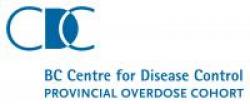Data access for the BC Provincial Overdose Cohort
NO LONGER AVAILABLE THROUGH POPDATA
UBC researchers identify the most dangerous prescriptions for B.C. drivers
UBC researchers identify the most dangerous prescriptions for B.C. drivers
(UBC News), Jeff Brubacher, April 22nd, 2021
Creation of the first national linked colorectal cancer dataset in Scotland: prospects for future research and a reflection on lessons learned
This webinar is part of the Power of Population Data Science Series
In this webinar, Peter, Catherine, Elizabeth and Steve will be describing their recent efforts to create the first national linked colorectal cancer (CRC) database in Scotland (full details in their recent publication).
Population-based Models for COVID-19 Hospitalization Forecast in British Columbia
This webinar is part of the Advanced Methods Webinar Series
The outbreaks of COVID-19 have posed a significant pressure on the health care system. There is therefore a great demand to predict which cases are likely to require hospitalization, to in turn identify hospitals most at-risk of being overwhelmed should such an outbreak occur.
The BC Provincial Overdose Cohort
The Call for Proposals to access the Provincial Overdose Cohort is currently closed.
Data source: Various

Date range:
Cases start from January 1, 2015 and end on December 31st, 2019
Marginal Structural Models
This webinar is part of the Advanced Methods Webinar Series
Health administrative data is longitudinal with measures captured on individuals over time. Conventional regression-based methods applied to longitudinal data do not explicitly account for time-varying confounders and can produce biased estimates for causal effects.
Copyright 2025 | All rights reserved

